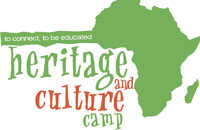Phone: 1.800.775.1797
in the news
IN THE NEWS
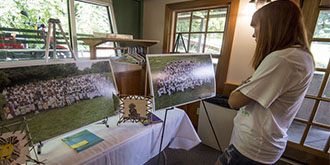
Daily News – Record August 2018
Celebrating Ethiopian Heritage
The Hickory, N.C., family wanted to ensure Mati stayed in touch with where she came from.
Toward that goal, each summer since she arrived in her new home, the Glynns have brought Mati to the Ethiopian Heritage and Culture Camp held at Massanetta Springs Camp and Conference Center just outside Harrisonburg.
The family hasn’t missed a year since she came in the U.S.
“She loves it,” said Rob Glynn, adding that Mati, now 16, participates in a dance group each year at camp. “She has really great friends that she gets to see every year.”
The Glynn family was among roughly 300 people to attend the 10th annual camp.
Northern Virginia resident Mekdes Bekele started the camp in 2009 as a way for Ethiopian children and parents to come together and support one another while embracing their native country’s heritage.
The four-day camp, which wrapped up Sunday, included a variety of activities, from learning the traditional Ethiopian dance iskista to horseback riding.
Bekele’s husband, Thomas B. Muleta, who helps his wife organize the event, said it’s hard to believe the camp is celebrating its 10th anniversary.
“It feels like a great accomplishment,” Muleta said. “We started off very small, but it’s become an institution in the Ethiopian community. People look forward to it each year.”
About 70 percent of the children who attend are adopted, he said, adding that he’s thankful that the parents have been committed to the camp.
“We really commend the parents,” Muleta said. “It’s a real blessing that they’ve adopted these children.”
Rob Glynn said people often say that Mati is lucky to be adopted. But, he said, it’s actually the opposite.
“We’re the lucky ones,” said Glynn, adding that the camp not only helped his daughter, but also benefited him and his wife.
“We wouldn’t have learned anything about [Ethiopian culture].”
The Glynn family weren’t the only parents at the camp to consider themselves the lucky ones.
Carol Bittner and Ross Stimely, who have three biological children, adopted 13-year-old Safiya Stimely and 15-year-old Masene Stimely in 2007.
Safiya and Masene also haven’t missed a camp since it started.
Through the years, Masene said, she’s been able to reunite with some of the other children who were at the same orphanage she was at for about a year.
“Camp is really just a big family for us,” she said
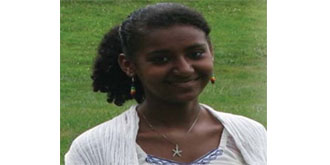
Adoption Today March 2016

ABC Channel 3 News July 2015
"Ethiopian Culture Thrives in Harrisonburg"
Families gathered to make friends and learn about Ethiopian Culture at a weekend camp.
Thursday night was the opening night of the Ethiopian Heritage Camp in Harrisonburg.
Native families and families with adopted Ethiopian children gathered at the Massaneta Springs Camp for a weekend
of fellowship and learning.
Though the camp is for all ages, it focuses on the children.
Throughout the weekend they will learn about customs, music and food native to Ethiopia.
We started with welcoming them the traditional way, the hospitality with the music and of course with Ethiopian coffee, and then we will end Sunday with a musical sendoff and a picnic lunch, says Mekdes Bekele, the founder of the Ethiopian Heritage and Culture Camp. We have Workshops, activities for the families really to get to know each other as a friend so they will create a long lasting friendship.
The camp is run by volunteers who work tirelessly to prepare and run the camp.
It will run through Sunday evening with different festivities each night.
© Copyright 2015 WHSV / Gray Television Group, Inc. All Rights Reserved.
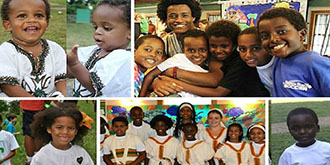
Tadias Magazine July 2015
Ethiopian Heritage & Culture Camp in Virginia Marks 7th Anniversary
Tadias Magazine
By Tadias Staff
Published: Sunday, July 26th, 2015
New York (TADIAS)- Mekdes Bekele launched the Ethiopian Heritage and Culture Camp in July 2009 to connect like-minded parents raising Ethiopian American children. A mother herself Mekdes says “Whether adoptive or biological, we have the common goal of raising first generation Ethiopian Americans.” The summer camp celebrates its seventh anniversary this year and it “is designed for the entire family,” Mekdes adds. “There are age-appropriate activities that will appeal to bothparents and their youngsters.”
Adoptive mother Julie Caran agrees. She says that each summer she and her husband come with their son to the Massaneta Springs camp and conference center in Harrisonburg, Virginia because they want their Ethiopian-born child to remain connected to his heritage and culture. “Ethiopian American volunteers come to camp because they wish they had something like this when they were our children’s age,” she wrote. “We all want these children to know who they are, and what it means to be Ethiopian.” Caran adds: “Yes, we get to attend excellent workshops to learn about everything from history to hair and art to Amharic, but something more important occurs at camp: We gain perspective. We interact inter-generationally and converse with children, teens, young adults, middle-aged adults, and grandparents.”
This year the camp program includes special guest Menlik Zergabachew. “Menlik, an Ethiopian-American singer and leader of the Reggae band The Relics, will join us at camp to perform with his band,” Mekdes said in a statement. “Menlik competed and had a successful run on NBC’s THE VOICE this last season.” In addition, the camp director points out that a “cooking lesson is being provided by Simret Hunt – noteworthy because Simret was a young 14-year-old when she attended our first heritage camp back in 2009. She is now a rising sophomore in college and we are fortunate to have her join us as a volunteer handling the cooking lessons.”
© Copyright 2015 Tadias Magazine. All Rights Reserved.

ABC Channel 3 News July 2014
"Ethiopian Camp Helps Kids Find Identity"
The Sixth Annual Ethiopian Heritage Camp was held at Massanetta Springs Camp.
The purpose is to teach kids of Ethiopian descent and adoptive families about their background and Ethiopian culture. Families enjoyed traditional Ethiopian dance, music, and food.
People there say the camp helps the children deal with many social issues.
“The satisfaction is amazing, the kids come alive, we see them growing, wee their confidence and their culture, their personality has changed,” said Mekdes Bekele, the camp organizer.
“My son sees how other families look like us. We are a mixed race family, a lot of the children here have white parents and a lot of them can see that there are a lot of families like them and that we’re not that different,” said Trevory Seeney, a parent.
About 350 people attended the event.
© Copyright 2015 WHSV / Gray Television Group, Inc. All Rights Reserved.
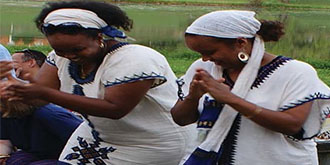
Adoption Today March 2013
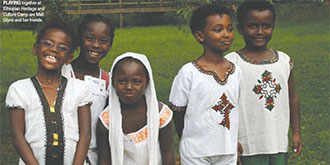
Adoption Today March 2012
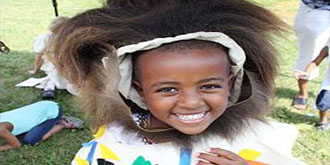
Zethiopia August 2011
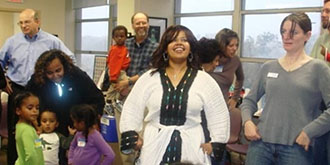
Tadias Magazine July 2011
At Family-Friendly Summer Camp in Virginia, Children Immerse in All Things Ethiopian
Tadias Magazine
By Tadias Staff
Published: July 29, 2011
New York (TADIAS) – The Ethiopian Heritage and Culture Camp at Massaneta Springs, situated in the heart of Virginia’s Shenandoah Valley, provides a family-friendly getaway for adopted Ethiopian children and their American parents who get to immerse themselves in a weekend of all things Ehtiopian.
The Washington Post reports that the camp fulfills a growing demand by adoptive parents who seek to connect with their children’s native culture. In 2010 more than 2,500 children were adopted from Ethiopian, which has resulted in an increased demand for information about the country. “we thought it was important for us to learn about our daughter’s culture and help her maintain that identity,” Mark Boucher told The Washington Post. He came to the camp from Albany, N.Y., with his family of four, including Lidia, the 7-year-old girl that they adopted three years ago.
The inter-generational summer camp was founded by Mekdes Bekele, who is also a mother of a young daughter. In an interview with Tadias Magazine about the summer camp in 2009, Mekdes noted: “We have the common goal of raising first generation Ethiopian Americans. What we offer is a venue and the opportunity for like-minded parents of children with Ethiopian heritage to interact with each other and share experiences and knowledge in how to raise confident, capable, and compassionate Ethiopian-Americans. For example, at this camp we will cover topics that apple to all of us such as: raising confident children on a culture conscious world who are struggling for identity, and parents will learn from the experiences of Ethiopian-American young adults on the challenges and the opportunities of growing up in America.”
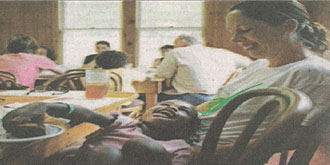
Washington Post July 2011

Washington Post July 2011
Ethiopian Heritage Camp in Va. offers togetherness to adopted kids, families
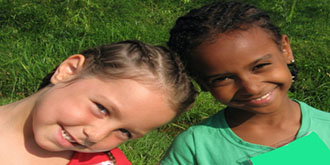
Zethiopia April 2011
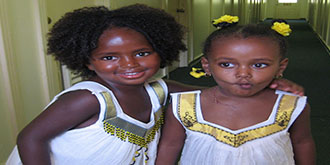

DNRonline.com July 2010
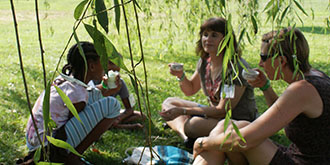
Ethiopia.adoptionblogs July 2010
KEEPING ETHIOPIA REAL THIS SUMMER by: Mandy W.
This past weekend we attended an Ethiopian Heritage and Culture camp in Virginia. I will be writing about all that I learned for a while. I cannot convey what this weekend meant to us as a family and to Mita and Enu.
One of the firsts was sitting in on a coffee ceremony. It was one of the things we missed on our trip to Ethiopia in 2008. This ceremony was cut down a bit on time, but had all of the qualities of an Ethiopian Coffee Ceremony. It usually lasts for hours, we did ours in about 45 minutes. I will share some of what I learned and show you some pictures. I also picked up a great children’s book explaining the origin of coffee. It is designed for kids, but an informative read for us older folks as well. Summer CampFirst the coffee beans are roasted over an open fire, then ground by hand by the mother or older daughter of the family. The coffee is then prepared, cooked and poured by the woman of the house. The head male or female cuts the sweat bread and passes it around, along with some popcorn. There is incense burning during the entire ceremony and leaves or flower petals are on the floor for a pleasant atmosphere.
If you have never had this authentic Ethiopian coffee, be prepared! It is quite strong tasting and is served in small cups, much like Expresso is. Sugar, honey or milk can be added.
Hubby, Mita and I sat under the willow tree for the ceremony. I was happy that Mita came with us. The other girls were off with the clown and animal balloons, but Mita was content with us under the tree remembering things. She said that the incense smell was something she remembered and also shared with me that she used to grind the coffee beans. Two more bits of information from her earlier life that I will treasure! She even tasted some coffee with sugar and we got a great picture of her sipping!
The preparers and servers all were in Ethiopian dress and it was a good experience for us all.The book Kaldi and The Dancing Goats: The Legend of Ethiopian Coffee by Sauda Mdahoma and illustrated by Sari Nordberg is a fun re-telling of the old story about how coffee was discovered in Ethiopia. After the story the author goes into detail about how to have a coffee ceremony and what the ceremony means to the Ethiopian people. I plan on reading this at my children’s school this coming year sometime. We brought back a coffee service set with us and I am so glad we did now. It means a lot more to me, since I have experienced the coffee ceremony and sipped some strong coffee!
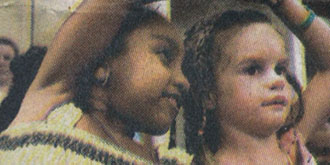
Daily News – Record July 2010

DNRonline.com July 2010
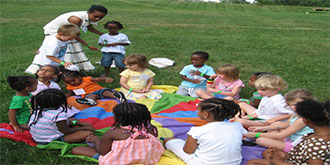
Tsehainy.com June 2010
Ethiopian Heritage and Culture Camp - Gateway to Culture
For one weekend families near and far will take part in a camp unlike no other. Like its name denotes, Ethiopian Heritage and Culture Camp is not your typical camp. In fact, it is the only camp dedicated to serving those who have been touched by Ethiopia.
Last year I was invited to be a panelist in a discussion on growing up in America. I was joined by two Ethiopian-Americans who were positive young adults. We spoke about our experience and then answered questions from the audience. They came from Ethiopian-American and Ethio-blended families who had the same goal: to raise positive and confident Ethiopian-American children. The discussion was highly enlightening for panelists and the audience. This was just one segment of a rich weekend full of instructive workshops and fun activities.
There was a seminar put together by an Ethiopian-American and her adoptive mother that moved everyone. The challenges of growing up as an adoptee were discussed as well as the experience of going back to Ethiopia for the first time. There was a class on hair-braiding where I sat next to a family who had an adopted daughter with them. Both parents sat in awe when the class begun but by the time it wrapped up, I observed their tensions had eased. Outside the cabins there were vendors selling everything from traditional clothes to hair products. There was a movie night, and on another evening we took part in a camp fire where we roasted marshmallows while a musician played Kirar. My favorite part of the camp was the banquet that was held on the last night. Traditional Ethiopian food was served and afterwards, live music filled the venue provoking me to show off my iskesta skills.
Instead of a 3-day camp, Camp 2011 is extended to 4 days and will be held from July 21 thru July 24. It will take place at the Massanetta Springs Camp and Conference Center in Harrisonburg, Virginia- a beautiful setting nestled on 200 acres of woodlands and meadows in the Shenandoah Mountains, a short two-hour drive from DC area. Mekdes Bekele, founder of the camp and owner of AbshiroKids, is ready to make more impact. For Mekdes, the reward is in the form of the children who she sees having fun, learning and being themselves.
In addition to last year’s events, Camp 2011 will include Kirar lessons and Traditional Instrument “Petting Zoo”, customary family dance lessons, soccer, art gallery, as well as traditional craft for kids, games, and much more. The sensational Abonesh “Abiti” Adinew will perform at the banquet alongside professional dancers. And on the last day, camp goers will be sent off with the sounds of Ethiopian Jazz vocalist Munit and her band as they perform for the closing.
The work of Ethiopian Heritage and Culture Camp is important and needed. During Camp 2009 there were many moments when I felt a sense of community with those around me. There was no doubt that everyone left the weekend touched in some way.
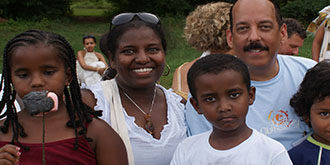
Zethiopia May 2010
For All Families Touched by Ethiopian Heritage
For most Ethiopian families, nothing will replace the experience of a visit back home; however, short of a visit back home, the Ethiopian Heritage and Culture Camp means the opportunity to connect with their heritage in a significant, positive, and fun way. For children such as Nati, Betty, and Bilen this camp means the opportunity to connect with their heritage that is cherished by their Ethiopian parents. For kids like Mati Glynn and Masene and Safiya Stimely, summer also means a joyous reunion for these friends from Ethiopia who came to the US through adoption. For all the families attending and raising Ethiopian-American children, this summer means gathering to celebrate Ethiopian culture at the Ethiopian Heritage and Culture Camp. For returning families, this annual event has become a reunion and a chance to renew lifelong bonds of friendship.
The camp is the brainchild of Mekdes Bekele, who came to the US 23 years ago. Mekdes, as the owner of AbshiroKids, and a mom, has long been committed to offering language resources to connect children of the Ethiopian Diaspora with their heritage. Starting the camp was a natural extension of that commitment. “I truly believe language is the key for keeping our kids connected to their culture, therefore, language classes will always be a key component of our camp experience.”
The 4-day camp will be held July 22-July 25 at the Massanetta Springs Camp and Conference Center in Harrisonburg, VA, a beautiful setting nestled on 200 acres of woodlands and meadows in the Shenandoah mountains, just a short two-hour drive from Washington DC. The camp welcomed over 200 children and adults in 2009 from as far away as Florida, Ohio and Kansas. This year, families from up and down the East Coast, from as far away as Massachusetts and Florida, have already registered to take part. This year’s number has already exceeded last year’s attendance with still two month left to register; the attendance is expected to easily top 250 in 2010.
The event is a unique venue which unites all families raising Ethiopian-American children. The goal of the camp is simple: To help Ethiopian children develop pride in themselves, as well as their heritage and become assets to their community. Activities range from classes in Amharic and Ethiopian history and etiquette, to Ethiopian dance workshops, music and movies. There is plenty of time for fun, as well, games and activities such as canoeing, swimming and volleyball.
The camp is not just for children, however. It also brings Ethiopian parents and adoptive parent together for the common goal of raising self-assured and well-adjusted Ethiopian Americans. For Elizabeth Glynn, mother of 8-year old Mati Glynn, the camp is a vital link to Mati’s heritage and friends. “We chose to adopt from Ethiopia in part because we are fascinated by the many cultures that exist in the country. My husband and I are committed to keeping Mati connected to her Ethiopian friends and to helping her develop knowledge, love and pride for her homeland.”
For Ethiopian mom Hirut of Virginia, it was a chance to take a mini vacation close to home. “My kids and I had a great time last year at the Camp. It was a wonderful long weekend and that gave us a chance to spend time together while enjoying all the fun activities offered. My kids were immersed in Ethiopian Culture with their peers for the entire weekend without having to travel back home. As a busy working mom, this was a nice purposeful vacation close to DC and we are looking forward to going back again this year”
While children are learning about their heritage through classes, songs, and games, adults can participate in workshops with topics ranging from how to raise culturally-aware first generation Ethiopian-Americans; the challenges and the opportunities of growing up in America, hearing directly from young Ethiopian adults; travel to Ethiopia; Ethiopian etiquette …etc. In addition to these educational activities, other fun activities such as traditional coffee ceremony, hair braiding, and much more will be offered.
The large Ethiopian community in the Washington DC area has embraced the camp. Many Ethiopian merchants will set up their wares in the camp’s Mercato, where participants can purchase clothing, books, spices, coffee, music CD’s, and Ethiopian souvenirs.
The highlight of the camp for children and adults is a traditional Ethiopian banquet complete with traditional food and dance – in other words this will be a serious “diggis”! The entertainment will be provided by professionals doing traditional Ethiopian music and dance.
For Mekdes and her group of volunteer organizers, the camp is a labor of love. “Parents last year thanked us for making a difference in their children’s lives. That was all the encouragement we needed to continue our commitment to this camp. Ultimately, it is about our children. Seeing the kids having fun, learning, enjoying and being themselves, is reward unto itself!!”
For more information about the camp or to register, go to www.heritageandculturecamp.org.
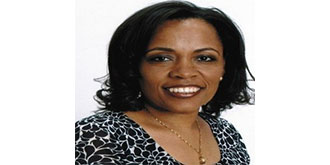
Tadias Magazine July 2009
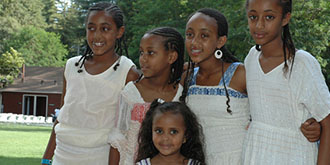
Ethiopia May 2009
Ethiopian Heritage & Culture: a three-day Camp will be held
Ethiopian Heritage & Culture Camp 2009, a three-day Camp will be held from Friday 12:00pm,July 24th,through noon on Sunday,July 26th.Families have the option to attend either the entire Camp or come for the Saturday activities only.The location for this year’s Camp is Massanetta Springs Camp and Conference Center,a beautiful setting in the Shenandoah mountains,just a short two-hour drive from Washington DC or Baltimore,MD.
Accordings to the,organizers, the goal of Heritage and Cultural Camp (www.heritageandculturecamp.org ) is to help keep kids connected to their heritage so that they are well rounded individuals with positive self image and a greater sense of community with their peers.This events brings together Ethiopian parents and adoptive parents to share their great common goal of rearing confident,capable and compassionate Ethiopian_Americans. It will be an invaluable opportunity for Ethiopian-American children to reconnect with their roots. The Heritage and Culture camp is a family event designed to be enlightening of parents,as well as fun and eductional for kids.
The camp schedule is packed with eductional (language, history, literature),as well as fun(music,arts & crafts,cooking,dance,campfire) kid’s activities.Parents will have opportunities to take seminars/workshops and should come away from the camp feelings more empowered and having a personal support system including members of the Ethiopian community and Ethio-Blended families from across the country. In addition,by interacing with their Ethiopian counterparts, adoptive families will be able to gain a greater knowledge of the culture from which their children come. “This camp will give kids the opportunity to be themselves ,see families similar to their own, and not worry about fitting in.”Lori Owens
Saturday evening is set as side for a traditional Ethiopian banquet with traditional music & dance.In addition,there will be apportunity to enjoy the pool,go fishing,play volleyball,basketball,soccer,ping pong or simply relax with friends.There will be a Gebeya(Market) to add great items to ones Ethiopian collection.Childcare will be provided while adult oriented presentations are underway.
Robust participation is expected from the Ethiopian-American community.Mekdas Bekele,one of the organizers said “The community has embraced this camp; in addition to families coming from the surrounding area we already have families registered from as far away as Florida,Ohio and Kansas.”
The camp package price include two nights select accommodations,all meals (Friday Lunch to Sunday lunch) and all programs (semianrs/workshops/activites) as well as childare.It is free for infants up to one year old.
Individuals and organizatons seekings information about the Ethiopian Heritage & Culture Camp 2009 may visit www.heritageandculturecamp.org or contact the organizers at Phone:800.775.1797 Email: info@heritageandculturecamp.org
NEWSLETTER
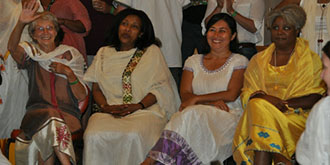
By Julie Caran July 2014
The Value of Heritage and Culture Camp
The Value of Heritage and Culture Camp by Julie Caran.
How can we appraise the value of Heritage and Culture Camp in our lives? Everyday moments with our son remind my husband and I why we return to the camp each summer. Last spring, when we heard distinctly Ethiopian dance tunes blasting from the car beside us, our son’s ears perked up and he shouted, “That sounds like Ethiopia!” When school began this year and his kindergarten teachers asked all of the international children in his class to bring in flags from their (or their parents’) country of origin, he proudly took an Ethiopian flag from his room to display alongside the others. Last week during a casual conversation with new acquaintances, my husband and I mentioned the cities where we grew up when our son stage-whispered, “Mommy! Daddy! Tell them where I’m from!” “Where are you from?” our new friend nudged. “I’m from Ethiopia!” he replied, beaming. This is why my family attends culture camp. Ethiopia is not just in his roots, buried underground; Ethiopia is a critical part of who he is every day. The sounds, smells, language, and tastes of his home country are more than just a faint memory; they are alive in his spirit because coming to culture camp renews his Ethiopian identity every summer.
Each summer, families come to camp because they want their Ethiopian-born children to remain connected to their heritage and culture. Ethiopian American volunteers come to camp because they wish they had had something like this when they were our children’s age. We all want these children to know who they are, and what it means to be Ethiopian. Yes, we get to attend excellent workshops to learn about everything from history to hair and art to Amharic, but something more important occurs at camp: We gain perspective. We interact intergenerationally and converse with children, teens, young adults, middle-aged adults, and grandparents.
We want our children to grow into confident, successful adults, and to see that there is a community of people who understand who they are and where they come from. Each year, workshops and panels remind us once again of the value of this camp, this community, and this culture in our children’s lives.
Here are a few highlights from 2014:
- Many of us were checking Google Earth the afternoon of Rhonda Roorda’s speech. During her wonderfully candid talk about her experience growing up in Maryland as a transracial adoptee, Rhonda shared that she was not only known to her classmates as the black girl with white parents, but as the girl who lived in the geodesic dome! Many of the Maryland attendees knew exactly where she had grown up, and the rest of us were curious to see the famous house.
- Dan Getachew brought humor to his speech as he told us about the joys and challenges of starting up an organic apple farm in Ashton, MD, known as Haile Orchard. While Getachew is better known for his impressive work as an engineer, we all enjoyed hearing about his latest venture.
- It was no surprise that Emmy award winner Bofta Yimam brought a level of polished professionalism to her presentation. In her multimedia presentation, Yimam shared the story of how she worked her way up the career ladder to become an investigative reporter at Pittsburgh Action News. Her perseverance and determination shined in the news clips she shared.
- As always, the young adult panelists helped us to better understand our children’s journey as Ethiopian Americans.
- Author Jane Kurtz stimulated our imaginations and took our children on a trip to Ethiopia through her stories and folk tales. At the same time, she partnered with camp attendees to bring books to Ethiopia through her literacy organization, Ethiopia Reads.
- Adults and children journeyed into the world of Stephanie Schlatter’s paintings, wherein Ethiopian pastoral scenes came to life. A prolific painter, Schlatter brought many original paintings with her to the gebeya.
- Many of our favorite staff and volunteers returned in 2014 to help us along with basic Amharic, Ethiopian musical scales, and cooking tibs. We shared in many coffee ceremonies and danced the night away, too! Thank you, Dereje, Gezachew, Mahalet, and Almaz.
- Genet Astatke-Faison, though not new to the camp, took on the role of educational specialist, and helped us to deliver active and interesting age-appropriate programming to the children.
- Temesgen joined us at camp to lead our music education efforts. He brought along his traditional Ethiopian instruments including the Krar and Masinko in order to teach children and adults alike about pentatonic scales of Ethiopian traditional music.
- The Dance Workshop is held annually during Camp. Children ages 9 years old and up train for 3 days and learn traditional Ethiopian dancing. Last year 13 children participated in the workshop after which they had the opportunity to perform in front of their parents, siblings, the other children, volunteers, and guests wearing their custom made cultural outfits.
- Last year, some of the children had the opportunity to don traditional cultural outfits as a showcase of the various beautiful designs and fabric that are found in Ethiopia. In addition to showing off the clothing, the children also performed activities such as weaving, grinding, holding coffee ceremonies to demonstrate some of the daily activities in a typical Ethiopian village.
- The 2014 camp stood out for its particularly impressive slate of presenters. Each speaker in the adult program was thoughtful, professional, and engaging. What a wonderful group of role models.
We look forward to connecting with you again August 6-9, 2015, at our 7th annual Ethiopian Heritage and Culture Camp. Camp will be held at Massanetta Springs Camp and Conference Center, located in Harrisonburg, Virginia, which can be reached via a picturesque 2-hour drive from Washington, DC.
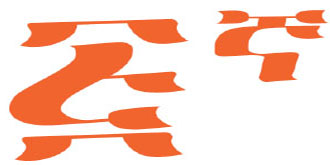
By Julie Caran March 2013
Remembering Heritage & Culture Camp 2013 - 5th Anniversary!
Remembering Heritage & Culture Camp 2013 – 5th Anniversary! by Julie Caran
Author Jane Kurtz stood before a room of wiggling preschoolers and addressed them. “I’m here,” she said, “because when I was a child, I was born in the United States, but when I was about your age, I moved to Ethiopia before Kurtz could finish her introduction, a burst of energy exploded from the little bodies. A tangled chorus of proud voices exclaimed, “I’m from Ethiopia!”
How exciting for a three or four year old, who usually only hears about this Ethiopia place from her parents, to suddenly hear one adult, and then another, and yet one more, mention that very place! Words can’t quite capture the astonishment of the younger children as they realize over the course of the four-day camp that almost every child here is, indeed, from Ethiopia.
At Heritage and Culture Camp, Ethiopia is not a faraway place only heard of in stories. Ethiopia is real and present in an unassuming conference center in Harrisonburg, Virginia where children and teens connect with each other, with staff and volunteers, and with families who share a common interest in instilling in their children a pride in their heritage.
On the first day of last summer’s camp, with the weather in full cooperation, the crowds flooded into Massanetta Springs Camp and Conference Center until it reached capacity. Staff members and volunteers greeted many guests by name as they checked in each family and then led the kids in games they used to play when they were children growing up in Ethiopia. Guests and staff shared in a coffee ceremony, enjoying the company – not to mention authentically brewed Ethiopian coffee and freshly popped corn. Children partook in the ritual, offering Defo Dabo and popcorn to young and old from traditional woven baskets. Even before the first full meal, the mission of the camp was already being realized as one family after another connected and reconnected while experiencing Ethiopian culture first-hand.
August 2013 marked the 5th anniversary of Heritage and Culture Camp. Many families have made the trip to Massanetta Springs a family tradition. Those who have attended Heritage and Culture Camp since its first gathering in 2009 were delighted to see their kids instantly rekindle the friendships and bring new children into the fold. With each year of camp, the level of comfort with one another and pride in a shared Ethiopian heritage continues to grow. Each year, we have witnessed the children’s growth from toddlers to rambunctious soccer players and careful weavers, from quiet children to confident dancers, from strangers to friends.
In commemoration of the camp’s 5th year, the volunteers planned a number of “best of” workshops and panels to capture some of the camp’s highlights. As always, the panel of young adult Ethiopian Americans was a highlight for many attendees. Each year, we gain perspective and wisdom from the men and women who are willing to share their experiences of growing up Ethiopian in America. Attendees can always trust the twenty-somethings to provide frank and thought-provoking anecdotes and opinions about race, ethnicity, and cultural identity.
While the adults enjoyed informative and educational workshops and panels, the children participated in their own group activities, including trivia-based scavenger hunts, soccer games, language and music classes, cooking, storytelling and writing workshops, arts and crafts projects, the intensive dance workshop, and listening to Ethiopian role models. Each children’s activity is infused with education. While making chechebsa, weaving baskets, and learning to greet each other politely in Amharic, the children learned a bit about daily life in Ethiopia. When racing from one end of the conference center to another in the scavenger hunt, the children learned facts about Ethiopian geography. “We witnessed deep conversations even with the younger children as they were doing their crafts. They are connecting and learning from each other…it’s working!!” said Deedie Stuart, a parent and member of the family leadership team.
All things have to come to an end, and so each year we say our good byes on Sunday after lunch. The finale is the performance of the dance group that has been practicing in semi-seclusion for many hours during the last four days. The unbridled enthusiasm of the performers and their dedication brings the house down and tears of joy are plentiful.
Soon after Camp is over, many wonderful and positively uplifting messages are received from parents. These messages, many of which relate how this Camp experience has enriched their child’s life, always brings a smile and often tears of joy. This provides the ultimate incentive and encouragement for all involved to continue their sacrifice to keep making Heritage and Culture Camp an annual tradition.

By H&CC Staff Highlight 2011
Tears of Joy Were The Reaction Of The Audience
2011 Heritage and Culture Camp Highlights :
As the grey skies of winter fill many of our landscapes, we hope this newsletter will transport you back to the Shenandoah Valley, where we gathered in the long, hot days of summer for our third annual Heritage and Culture Camp. Each year, word has continued to spread among members of the Ethiopian community, parents of Ethiopian children, and others who have at some point lived in Ethiopia. Each participant comes to reconnect to the rich culture and warm community, and many of us come so that our children can grow up knowing that they are an important part of that community. This year, camp was at capacity.
Heritage and Culture Camp 2011 provided an exciting new opportunity for 13 boys and girls, ages 9-14, who participated in an Intensive Dance Workshop. They mastered traditional Ethiopian dances from 4 different regions of Ethiopia. Their hard work culminated in a performance for the entire camp on Sunday morning! Tears of joy were the reaction of the audience. What confidence these kids had in their culture and themselves to perform in front of hundreds of people!
As always, all kids were quite busy! This year the children constructed krars during art class, played against each other in soccer tournaments, learned all about Ethiopian geography during a camp-wide scavenger hunt, went riding on a traditionally decorated pony, and, of course, learned songs and phrases in Amharic!
Each year, the children build on the friendships they have established in previous years, and we realize once again that this camp is really for them. Just as they would at any camp, the children make connections based on shared hobbies, interests, or passions. At culture camp, though, they find others who understand their story, their background, and their situation. The older children and teens act as role models for the younger kids, and the adults feel pride and joy as we see these positive interactions that help to build confidence among attendees of all ages.
Though most of us attend camp for the kids, each year we gain as much as our children from the experience. We, too, make new connections and build on friendships developed in past years, and with the knowledge gained in workshops and in between, we leave camp feeling more confident about our role as parents of children who straddle two worlds.

By H&CC Staff Highlight 2010
Humbled & Grateful To Be Part Of This Hugely Successful Camp!
2012 Heritage and Culture Camp Highlights
Families came from all over the United States, with 22 plus states represented!!! These families have one noteworthy interest in common: a commitment to raising Ethiopian-American children with an appreciation for their ancestral land. They found each other through the annual Ethiopian Heritage and Culture Camp held in Harrisonburg, Virginia. For families who live in areas where there is no Ethiopian community, and do not have access to the language and culture, the camp provides their children’s only access to their heritage. Adoptive parents value this chance for the children to be immersed in a community of native speakers. Ethiopian parents value the opportunity to give a taste of their homeland to their kids for four days. For most of these families, who may not have a chance to participate in family oriented Ethiopian activities throughout the year, camp is an opportunity for a purposeful family vacation.
The Ethiopian Heritage and Culture Camp convened for its fourth year at Massanetta Springs Camp and Conference Center in August 2012. In addition to coming from all over the United States, the attendees ranged from infants to grandparents, and included both Ethiopian parents and adoptive parents who are raising their Ethiopian children outside Ethiopia. The camp’s staff of volunteers includes a group of parents, as you might expect, but at its core a number of Ethiopian young adults who feel strongly about sharing their culture and language with a new generation.
Fittingly Camp 2012 started with its own Olympics! That was an icebreaker for all, where all age groups participated in its first ever Olympics with an award ceremony at the dinner the same night. The camp’s dance workshop, one of the camp’s most popular programs among tweens and teens introduced and taught the kids different dances from various regions of Ethiopia. The children performed these dances for their eager parents and siblings on the last day of camp. There was also the “Traditional Fashion Display”, where the kids get to learn more about the different regions of Ethiopia not only by wearing the regional outfit but by also taking the roll of the representative of that region and explaining to their parents about their “region”. This program was very popular – One parent, who was amazed by what the kids were able to do and learn as part of this activity said, “You must bring back the Traditional Fashion Display next year!” In addition, the camp provided the children with workshops covering arts and crafts such as “Build Your Own Buna Set,” games and sports (from soccer to “Pepsi”), lessons on Ethiopian musical instruments, Ingocha cooking, and the fundamentals of conversational Amharic.
Every year since the camp’s inception, attendees have heard a refrain from the young adults who participate in a Question and Answer panel on the camp’s final day: “Language is key! If you want your children to connect with their culture, connect them to the language.” That has been the consistent message from these young adults to parents every single year.
Special highlights at 2012 camp included visits from two popular authors with Ethiopia in their hearts. Melissa Faye Green and Jane Kurtz. Green shared stories of her experiences as a parent of 9 biological and adoptive children. Two of Green’s teenaged children joined her at the camp, and shared their own experiences in a panel on Ethiopian-American identity on Sunday morning.
Jane Kurtz, an author of children’s books, grew up in Ethiopia and manages to infuse many aspects of her experience in Ethiopia into her stories. Both parents and their kids adored Kurtz! She gave parents the insight of passing along to their kids what they think is important including the languages and culture they love through story telling or writing. She showed kids how they can feel powerful by writing or telling who they are and what they care about.
Mr. Andrew Laurence, an Ethiopian-American historian and cultural ambassador gave an inspiring talk about Ethiopian and African-American historical relations. Mr. Laurence, who is bi-racial, with an Ethiopian father and an American mother, provided an excellent multimedia program highlighting long standing historical relationship between Ethiopia and the African-American community going back two hundred years.
Dr. Wudneh Admassu, an Ethiopian professor of engineering at the University of Idaho was featured as one of the guest speakers. Dr. Admassu, who is the inventor and patent holder of the one and only automated Injera making machine, gave a captivating presentation on the technology, economics, and the social imperatives that compelled him to create the Injera making machine. The camp was pleased to receive a wonderful letter of support and appreciation from Dr. Admassu. Hear are some of the key comments from his letter.
“I can tell you that these kids might not know the magnitude and importance of this camp in their lives now, but when they grow up they will thank you immensely! The impression I got from the kids and parents, for the time I spent, was that they were having fun learning about Ethiopia. I am humbled and grateful to be part of this hugely successful camp!”
Heritage
&
Culture
REGISTER NOW!
FOLLOW US
Copyright © 2025 heritageandculturecamp.org All rights reserved. 1.800.775.1797
